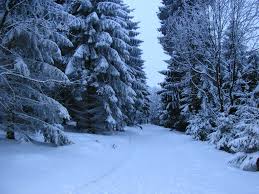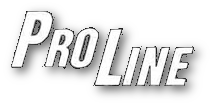 The proverbial slow season, which varies in length depending on geography, can be downright difficult for tree service companies to survive. While it is possible to do enough work during the busy season to make ends meet year round, such an approach doesn’t make for a good work-life balance. The following strategies may provide some help for companies looking to reduce summertime burden and increase winter employment.
The proverbial slow season, which varies in length depending on geography, can be downright difficult for tree service companies to survive. While it is possible to do enough work during the busy season to make ends meet year round, such an approach doesn’t make for a good work-life balance. The following strategies may provide some help for companies looking to reduce summertime burden and increase winter employment.
Smart Financing
Keep track of expenses so that unnecessary costs can be dispensed with during the slow season. Consider suspending insurance on equipment that won’t be used during winter. Put off optional repairs and purchases until the busy season unless you can get a good deal. Some products are less expensive in the off-season than during seasons of peak demand. By planning ahead, it may be possible to drastically cut yearly costs by paying less for a product or service during the off-season, effectively increasing net income.
Presell and Promote
Not everything needs to be done during the busy season. Certain trees, for instance, may be less prone to disease if pruned in the winter, difficult-to-access areas (e.g. wet) will be less prone to damage from equipment, and high-risk areas (e.g. poison ivy, insects, etc.) may be easier to work in when the weather changes. To make it palatable for customers to wait for non-emergency work, offer discounts and “presell” the service. By pre-booking “off-season” work, businesses can plan to have revenue coming in throughout the year. Such preselling can be especially effective with commercial and government clients who can afford to wait and will appreciate the discount.
Extend Services
When traditional services aren’t in demand, it may be time to consider additional seasonal offerings. Examples of such offerings include clearing snow, delivering firewood, selling Christmas trees, hanging holiday lights (many companies own the lights and lease them to customers during the season), and soil sampling and testing. It is important to consider these extended services long before the off-season in order to advertise, obtain necessary permits or licenses, and check that insurance covers the work.
One off-season service that may be lucrative is hands-on education. Teaching homeowners about pests, pruning, fertilizer and pesticide application, native planting strategies, fire-resistant landscaping, and so forth can, be a great way to earn money and keep the company’s name at the forefront of peoples’ minds. Education, if done right, can also foster goodwill between a company and its clients.
Resources
http://www.treeservicesmagazine.com/tree-care-management/insurance/surviving-the-slow-season/
http://www.entrepreneur.com/article/220398
http://www.lsuagcenter.com/en/lawn_garden/home_gardening/lawn/soil_fertility/Soil+Test+in+Fall+or+Winter.htm

